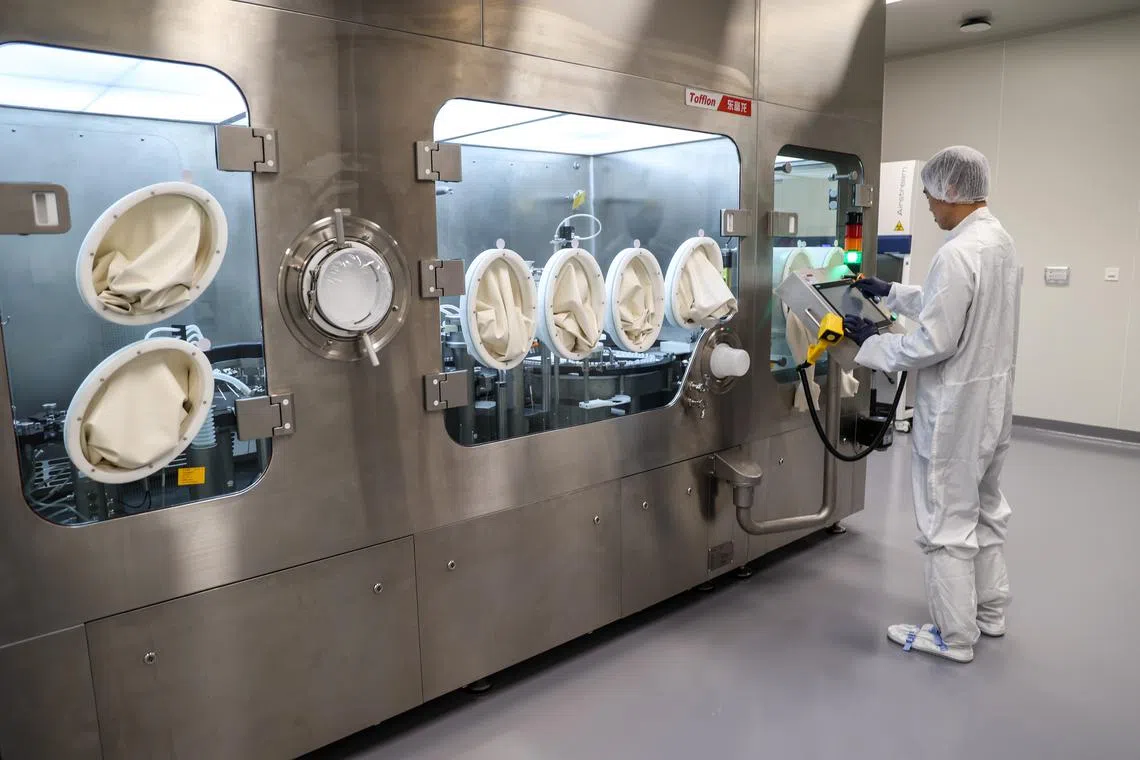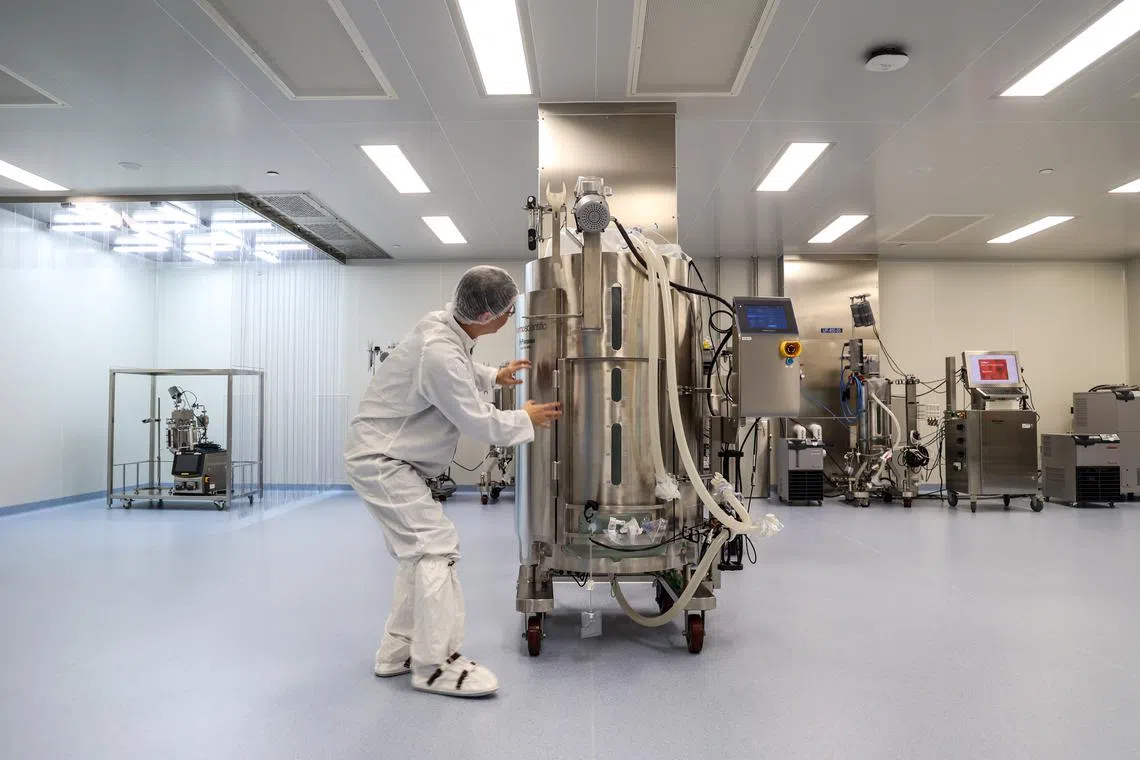Vaccine-maker Hilleman opens $27m plant in Singapore to bolster pandemic preparedness
Sign up now: Get ST's newsletters delivered to your inbox
Follow topic:
SINGAPORE – A large-scale manufacturing facility that develops affordable vaccines in Singapore for common diseases, and can easily switch to production of new vaccines for the next pandemic, was officially opened on Thursday.
The $27 million facility is part of a five-year $80 million investment by Hilleman Laboratories, which also includes a research and development (R&D) laboratory in Biopolis.
The new 30,000 sq ft manufacturing facility in Depot Road, called Aces, focuses on early clinical development of vaccines during peacetime.
It works in tandem with its R&D laboratory to provide biopharmaceutical products, from concept to manufacturing. These include high-value vaccines and biologics – medicine containing substances created with living cells or organisms – for Singapore as well as low- and middle-income countries.
Hilleman Laboratories is a joint venture between American drugmaker MSD and British charitable foundation Wellcome Trust.
One of its research projects, in collaboration with the Agency for Science, Technology and Research, examines the viability of a circular ribonucleic acid, or circRNA.
This is a form of RNA vaccine technology whose potential benefits include greater flexibility in adapting a vaccine to evolving virus strains, allowing for faster response to an outbreak, as well as stability at regular fridge temperatures of between 2 deg C and 8 deg C.
The facility is designed to enable production to be agile and easily adaptable for future or emergency needs, which means it could pivot to produce new vaccines to fight the next pandemic without disrupting ongoing operations.
“Hilleman Laboratories will be a crucial piece of the pandemic preparedness and resilience jigsaw,” said Health Minister Ong Ye Kung at the launch of Aces, which was built based on current good manufacturing practices (cGMP).
“This cGMP facility, together with an existing R&D facility in Biopolis, will form a vaccine and biologics development and manufacturing hub, which is the first of its kind in Singapore, and probably the region.”
Hilleman Laboratories chief executive Raman Rao said: “The opening of the Aces facility marks a significant milestone in our commitment to advancing global public health through innovation and research.
“Hilleman Laboratories is well poised to share our expertise in vaccine and biologics manufacturing to foster local capabilities while bolstering Singapore’s resilience against disease outbreaks, especially those with a pandemic possibility.”
The company will produce vaccines for prevalent infections such as dengue, rotavirus, cholera, and pneumococcal and meningococcal diseases.
Singapore went from not having a single facility producing finished vaccines prior to the Covid-19 pandemic, to five over the past two years.

The facility is designed to enable production to be agile and easily adaptable for future or emergency needs.
PHOTO: LIANHE ZAOBAO
And on Wednesday, United States biotech venture creation company Flagship Pioneering, best known for its role in backing Moderna, announced its expansion into the Asia-Pacific region, with the opening of a regional hub in Singapore. This follows the company’s expansion into Britain earlier in 2023.
Apart from Hilleman Laboratories, other vaccine manufacturers that have set up shop here are American firms MSD and Thermo Fisher Scientific, French giant Sanofi and German company BioNTech.
In July, GSK broke ground for its $343 million state-of-the-art vaccines facility in Tuas.
These plants will be churning out over a billion doses annually, with products ranging from traditional types, such as live-attenuated and recombinant vaccines, to the latest mRNA ones.

The $27 million facility is part of a five-year $80 million investment by Hilleman Laboratories.
PHOTO: LIANHE ZAOBAO
Based on revenue in 2022, eight of the top 10 medical technology players and nine of the top 10 biopharmaceutical companies have an established presence in Singapore.
They are conducting research, developing and manufacturing new products, and meeting regional and global healthcare needs from the island republic.
Mr Ong said that in so doing, they are strengthening Singapore’s capabilities, creating jobs and generating growth.
He said that in 2021, both the biopharmaceutical and medical technology industries produced more than $34 billion worth of products for global markets, contributing to 3.1 per cent of the country’s gross domestic product.
The two sectors have also employed about 25,000 people in Singapore, double the number since the early 2000s, and overall R&D spending grew from about $600 million in 2010 to about $830 million in 2020.


